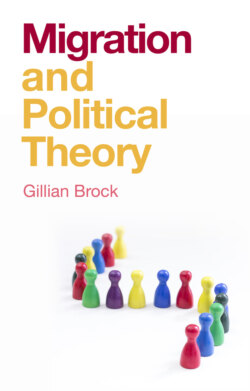Читать книгу Migration and Political Theory - Gillian Brock - Страница 23
2.2.3 Concerns of global justice and inequality
ОглавлениеOur world is filled with very high levels of inequality and poverty on a global scale. And so, on this argument, states have duties to open their borders to the global poor. Failure to do so entrenches inequality and global poverty.
Many challenges can be marshaled to such a view. One important challenge concerns debates around this question: Is migration an effective means for addressing global poverty? This depends on what you believe effectively addresses global poverty (an issue we consider in more detail in chapter 8) and with what kinds of alternatives you are comparing migration. Many believe that foreign aid is an effective solution. You might have the view that migration can be more effective than foreign aid in some circumstances, for instance when there are high levels of corruption, incompetence in aid distribution, or aid is otherwise ineffective. Or you might have the view that opening borders does not help those most in need since those who migrate are often the more advantaged of the disadvantaged, having (for instance) sufficient resources to make the trip.
Indeed, you might believe that migration actually worsens the situation of the global poor because of the phenomenon of brain drain. The idea here is that when those with specialist skills emigrate in high numbers, they can make things worse for those who remain since their departure can result in a shortage of skills and undermine supply in core services, such as education or health. In chapter 8, I consider such arguments, along with some of the alleged benefits such high-skill migration might bring to those left behind.
